Yelp Data Reveals How Affordability, Solo Outings and Immersive Experiences Are Driving Shifts in the Restaurant Industry
June 11, 2025
For more on the methodology for this report, click here.
The restaurant industry continues to navigate a landscape shaped by shifting economic pressures, while evolving consumer preferences redefine how, when, and why people dine out. With inflation and rising living costs, diners are prioritizing affordability and value, driving an increase in searches for budget-friendly dining. At the same time, consumers are seeking more than just a meal, fueling growth in immersive dining experiences and a notable rise in solo dining. Late-night dining is also in flux, adapting to challenges like labor shortages and evolving nightlife habits. While some 24-hour restaurants have closed, innovative restaurateurs are seizing new opportunities to reinvent the round-the-clock dining model.
Yelp data analyzed consumer searches from January to March 2025 as compared to the same period in 2024, highlighting these shifts.
Diners prioritize value as searches surge for affordable restaurants
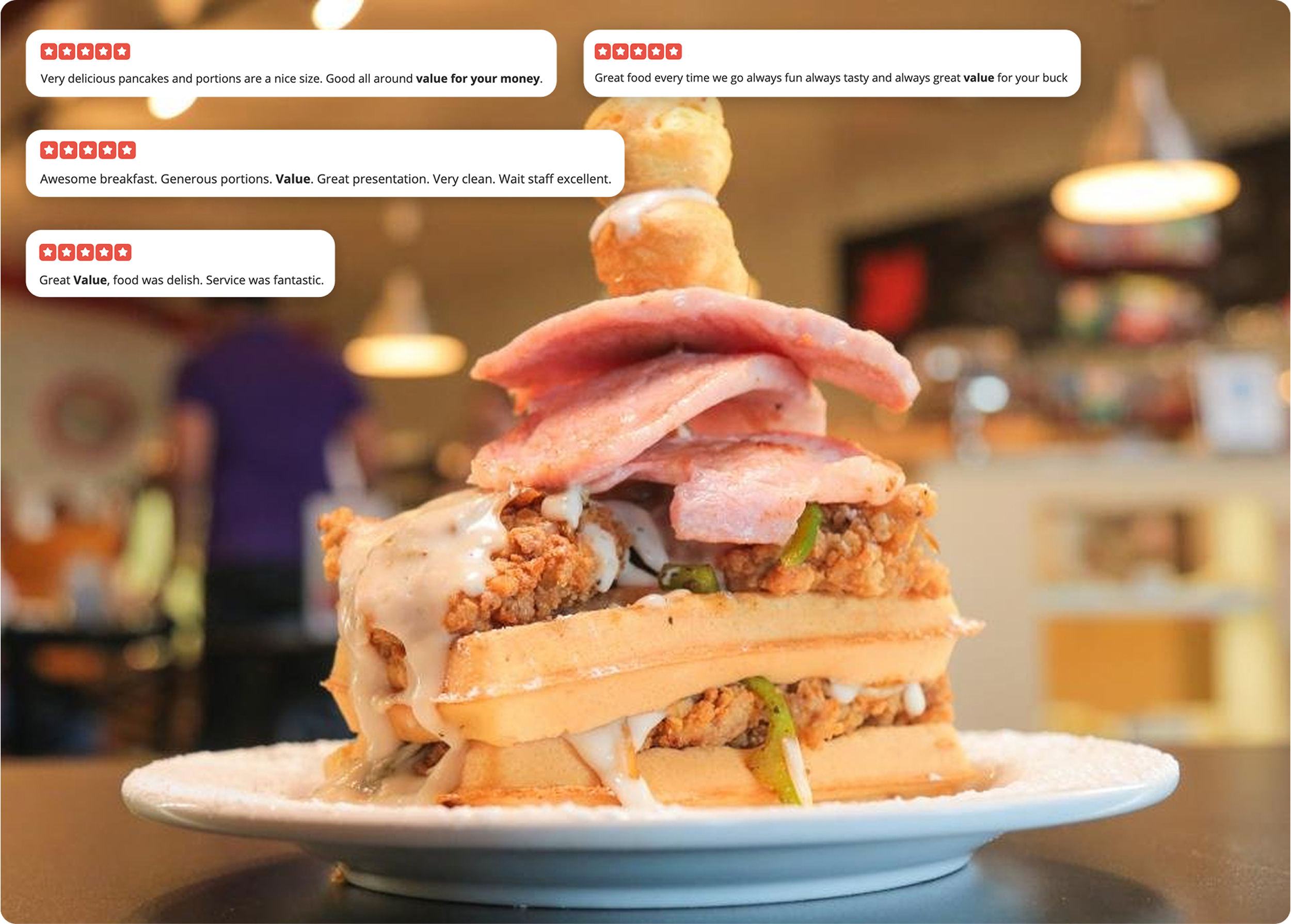


With inflation raising the cost of essentials like groceries and rent, many consumers are taking a closer look at their discretionary spending. Diners are seeking ways to enjoy social and culinary experiences without breaking their budgets. Yelp search data from the first quarter of 2025 shows an increase in searches for budget-friendly dining choices compared with the same period last year. Searches for "cheap eats" are up 21%.

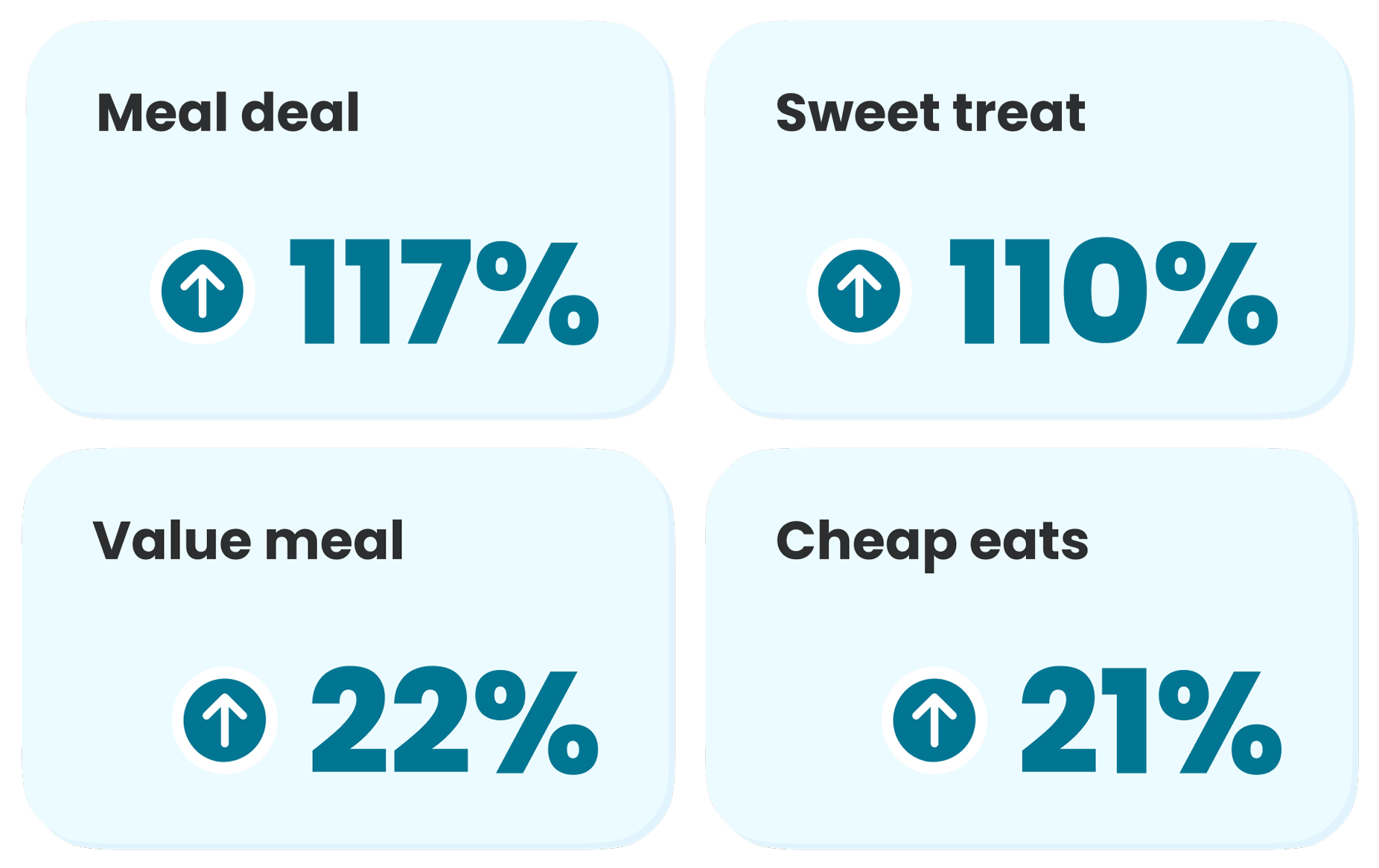

Further illustrating this trend, searches for “meal deal” are up 117%, and those for “value meal” have climbed 22%. Even as consumers look for savings, small indulgences remain popular. Searches for "sweet treat" have soared by 110%, suggesting a continued desire for little treats.
Solo dining and experience-focused restaurants fuel dining trends
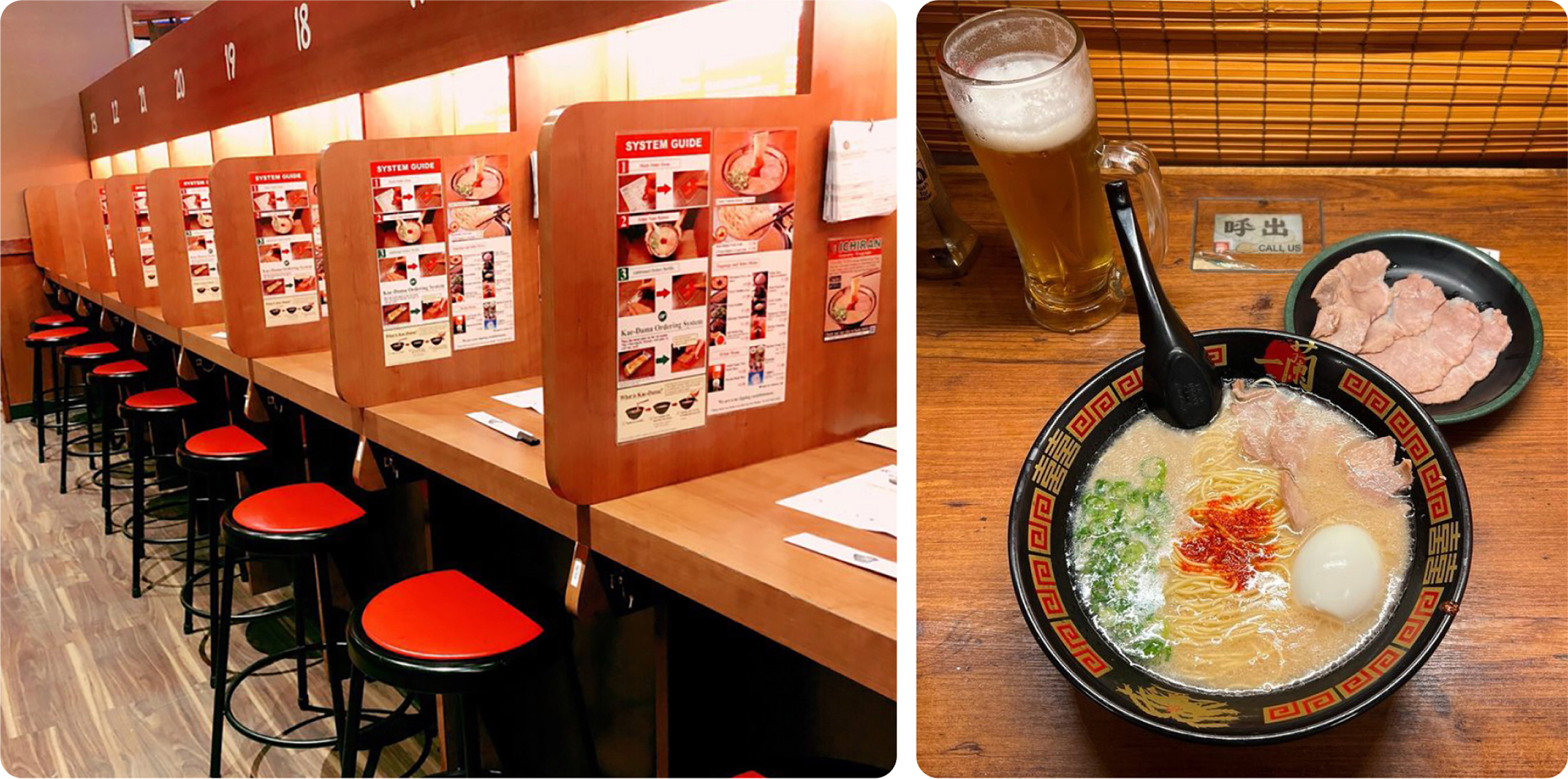


Yelp data indicates that new dining habits are emerging, driven by evolving consumer behaviors and broader economic changes. Recent data shows increases in searches for solo dining and experiential dining concepts, underscoring a landscape where personal preferences and immersive experiences are taking center stage.



Searches for “solo dining” have skyrocketed by 271%, with inquiries for the “best place to eat alone” up 150%. This marks a significant cultural shift in how consumers view dining out – not simply as a social activity, but also as a personal treat or break amidst everyday routines. Some restaurants have responded by redesigning their spaces—introducing bar seating, communal tables and counter-service models that make solo diners feel welcome rather than isolated.
With tighter budgets, consumers are looking for restaurants that offer more than just a meal. Diners are seeking options that justify their spend by bringing together entertainment, storytelling and memorable settings into their dining experience.

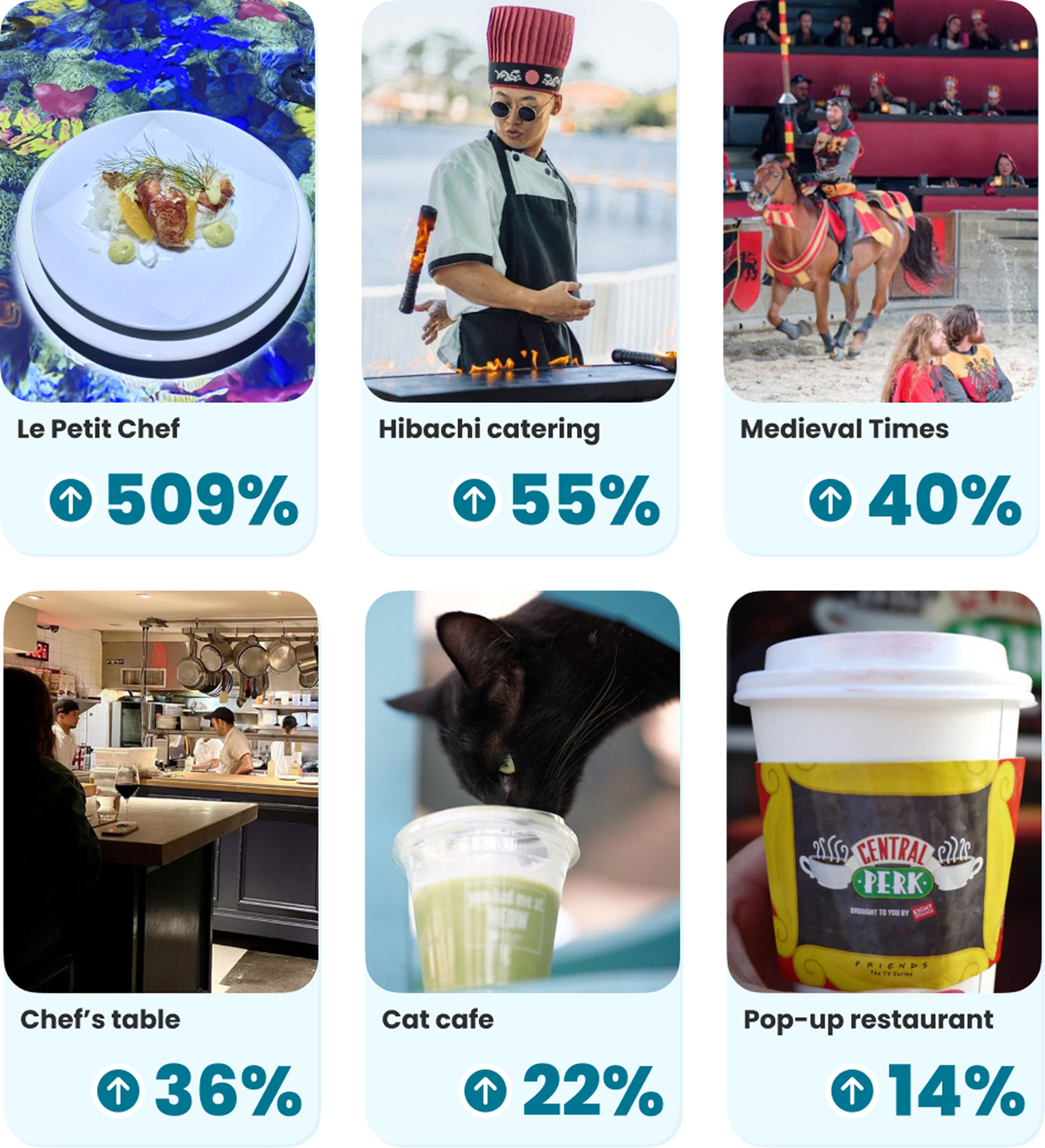

Searches for unique dining experiences such as “Le Petit Chef” (up 509%), “hibachi catering” (up 55%), “Medieval Times” (up 40%), “chef’s table” (up 36%), and “pop-up restaurant” (up 14%), have all risen during the time period.
24/7 restaurants face decline, but some cities buck the trend
The 24/7 restaurant model, once a staple of many American cities, has undergone a shift over the past five years. Labor shortages continue to challenge operators, with overnight shifts proving especially difficult to staff. Younger Americans are also drinking less than previous generations, transforming consumer behavior and weakening demand for a late-night meal.
According to Yelp data, 24/7 restaurants in the United States decreased by 11% from January 2020 to 2025. This decline has been especially pronounced in Los Angeles, where the number of 24/7 restaurants is down 29%. Las Vegas, a city known for its non-stop energy, has a 9% decrease. However, a handful of cities are defying this downward trend: Salt Lake City has experienced a 25% increase, while Baltimore has gained 14%, and Key West is up 33%.
24/7 restaurants increasing and decreasing nationwide
New Mexico leads in increases while California experiencing decline
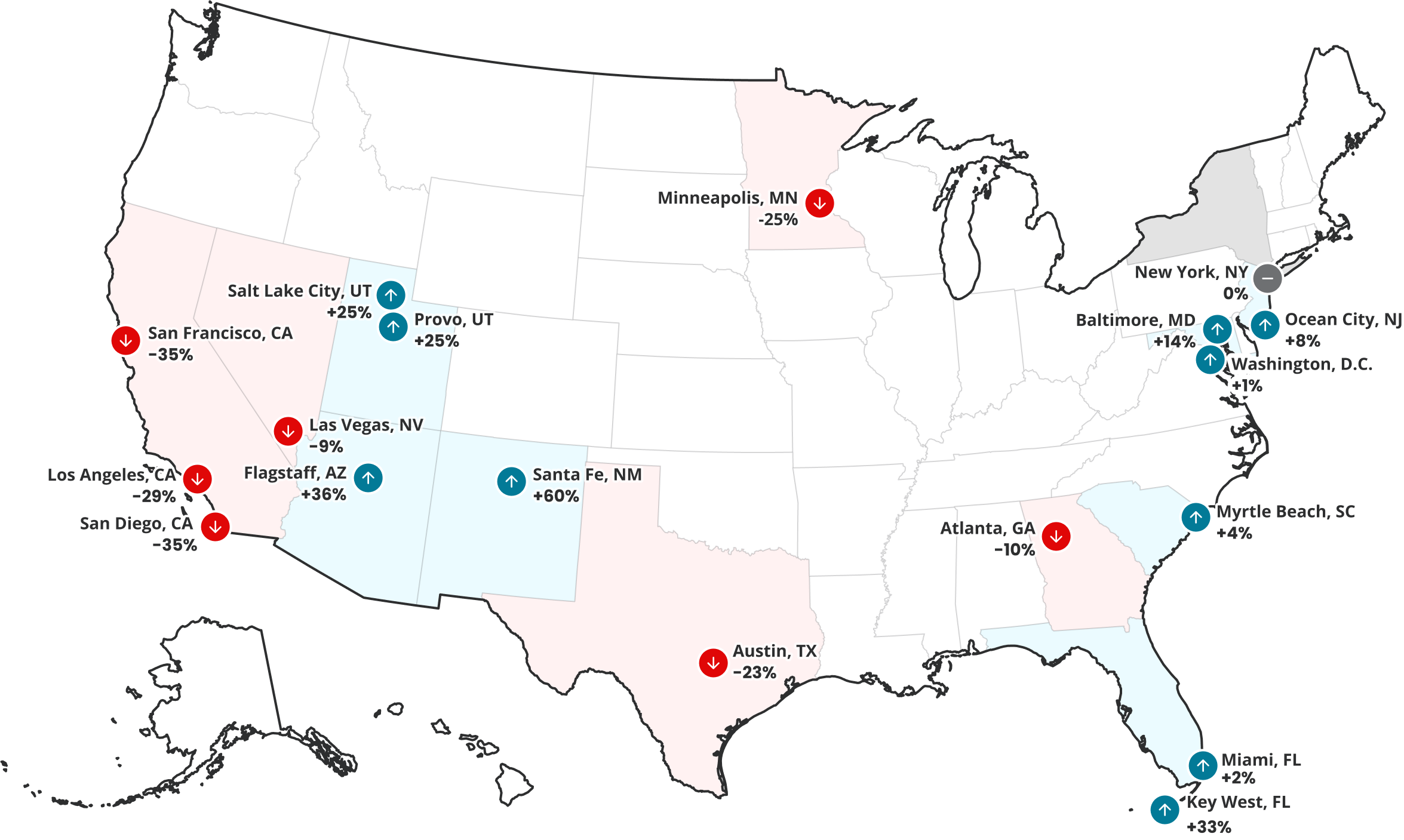


Many surviving or newly opened 24/7 establishments are adopting innovative operational strategies to remain viable. These adaptations include the use of self-service kiosks, mobile ordering platforms, and streamlined menus—measures that help reduce labor requirements and enhance efficiency, particularly in high-traffic or tourist-heavy areas.
The restaurant industry is experiencing rapid change as economic realities and evolving consumer preferences are reshaping dining habits. Yelp data from the last year illustrates that affordability and value are now at the forefront of dining decisions, while solo dining and immersive experiences are gaining steam. Restaurants that understand and anticipate these changes—embracing value, experience, and operational innovation—will be well positioned to meet the expectations of the modern diner.
If you'd like additional detail on how the economy is shifting, please contact us at press@yelp.com or join our mailing list to receive an email when new reports are released.
Methodology
Change in searches
Yelp analyzed search increases by measuring the frequency of phrases mentioned per million searches, comparing January-March 2024 to January-March 2025.
Business operating hours
To measure changes in 24/7 restaurant operations, Yelp compared how many of the businesses in the restaurants category that operated continuously throughout the measurement period were listed as open 24 hours in January 2020 and January 2025.
Downloadable static graphics can be found here.


